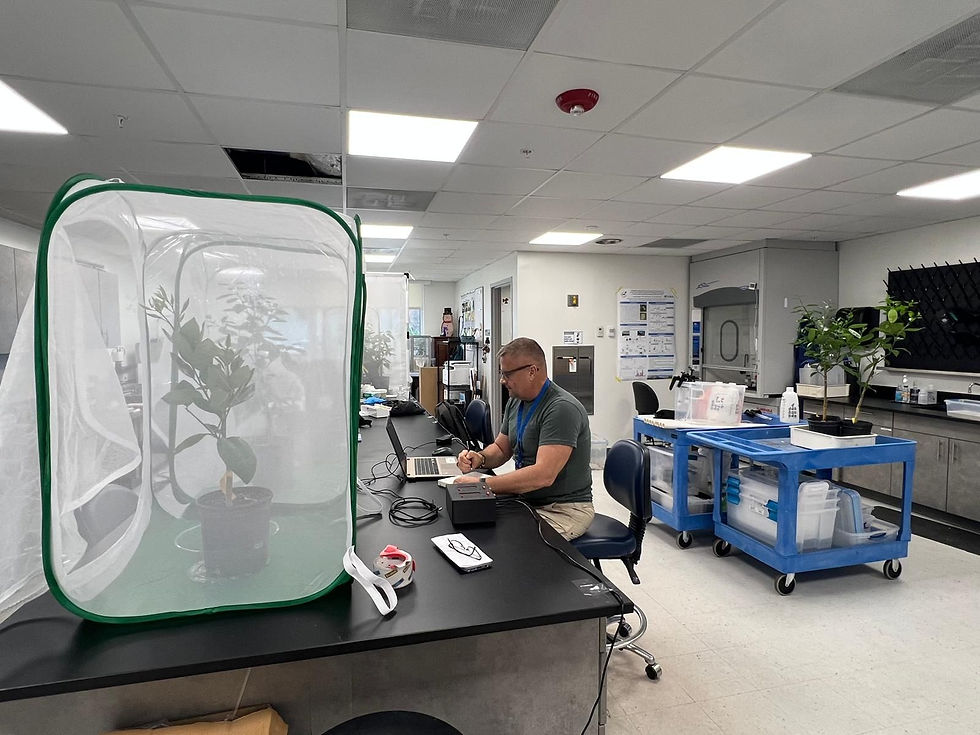An environmental alternative to chemical crop protection: BEETLESS smart traps undergoing trials in Florida
- bvelykyi
- Aug 11
- 1 min read

In the state of Florida, the agricultural crisis is escalating: pests are developing resistance to pesticides, citrus crops are facing a serious threat, and increasing the dosage of chemical crop protection agents amplifies the risks to human health and the environment. In particular, the issue of invasive species developing resistance to pesticides is a global problem affecting producers in many countries.
Therefore, in the Alfred Lakes area, the BEETLESS team, in collaboration with entomologists from the University of Florida, is conducting laboratory research aimed at testing patented smart traps, which serve as an environmentally friendly and highly effective alternative to traditional chemical crop protection methods.
The BEETLESS targeted insect threat monitoring system includes:
proprietary intelligent traps
AI models trained for precise pest classification
integrated partner AI resources for large-scale analysis
a cloud-based platform for dynamic threat tracking
real-time visualizations for farmers, researchers, and government agencies
This technology thus makes it possible to detect outbreaks at early stages, forecast risks, and make rapid, well-informed decisions at all levels of management.
BEETLESS has been developed with scalability in mind, enabling adaptation to various climatic zones and types of agricultural crops, which opens prospects for deployment in regions facing similar challenges. In particular, integrating BEETLESS solutions into international programs for sustainable agriculture and digital agroanalytics will not only help preserve yields but also establish national-level early warning systems for biological threats. This makes the technology a valuable tool for countries aiming to reduce dependence on chemical agents while simultaneously increasing agricultural production efficiency.
BEETLESS is an example of how modern technologies can transform the agricultural sector, safeguard harvests, support food security, and reduce reliance on pesticides.















Comments